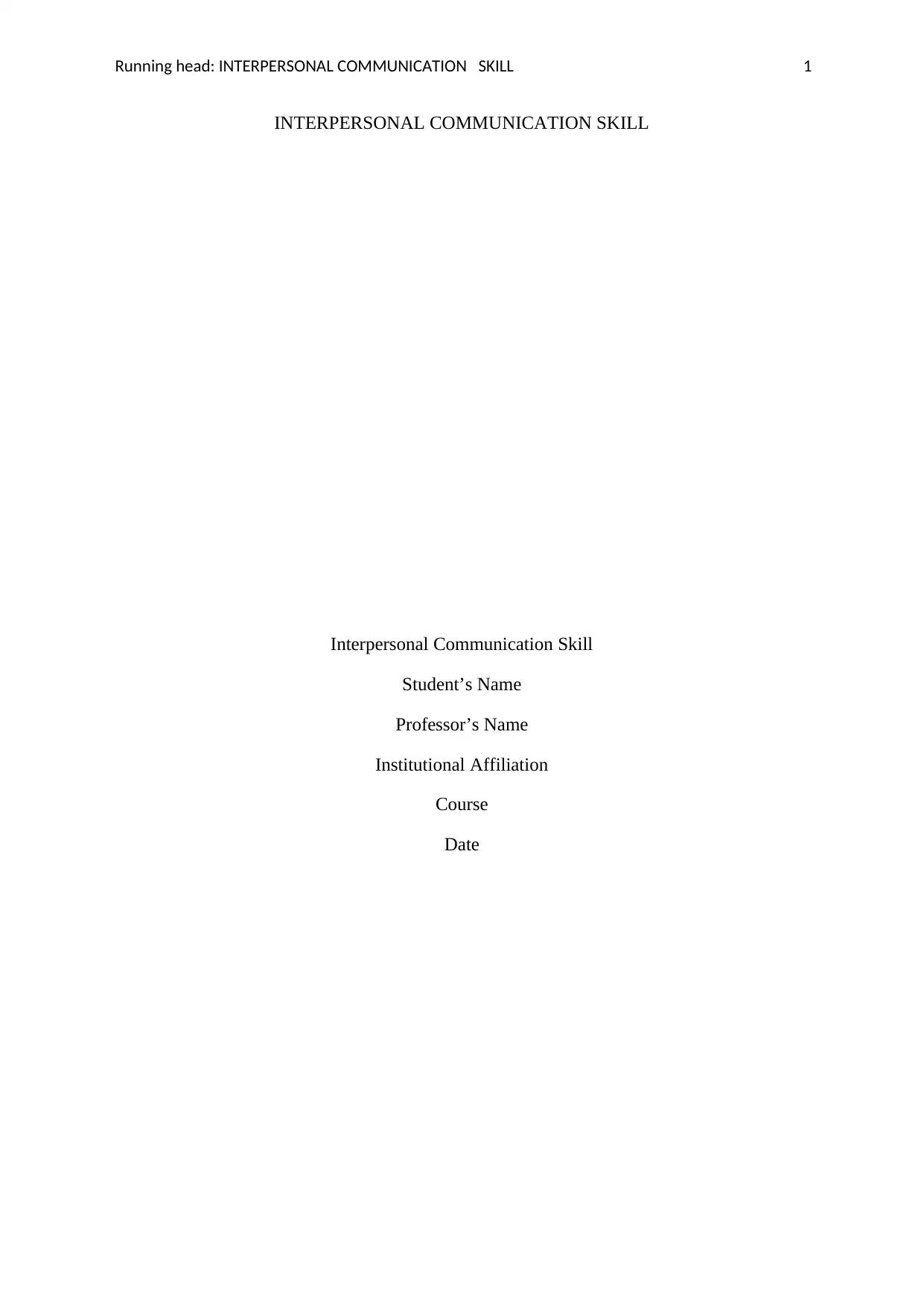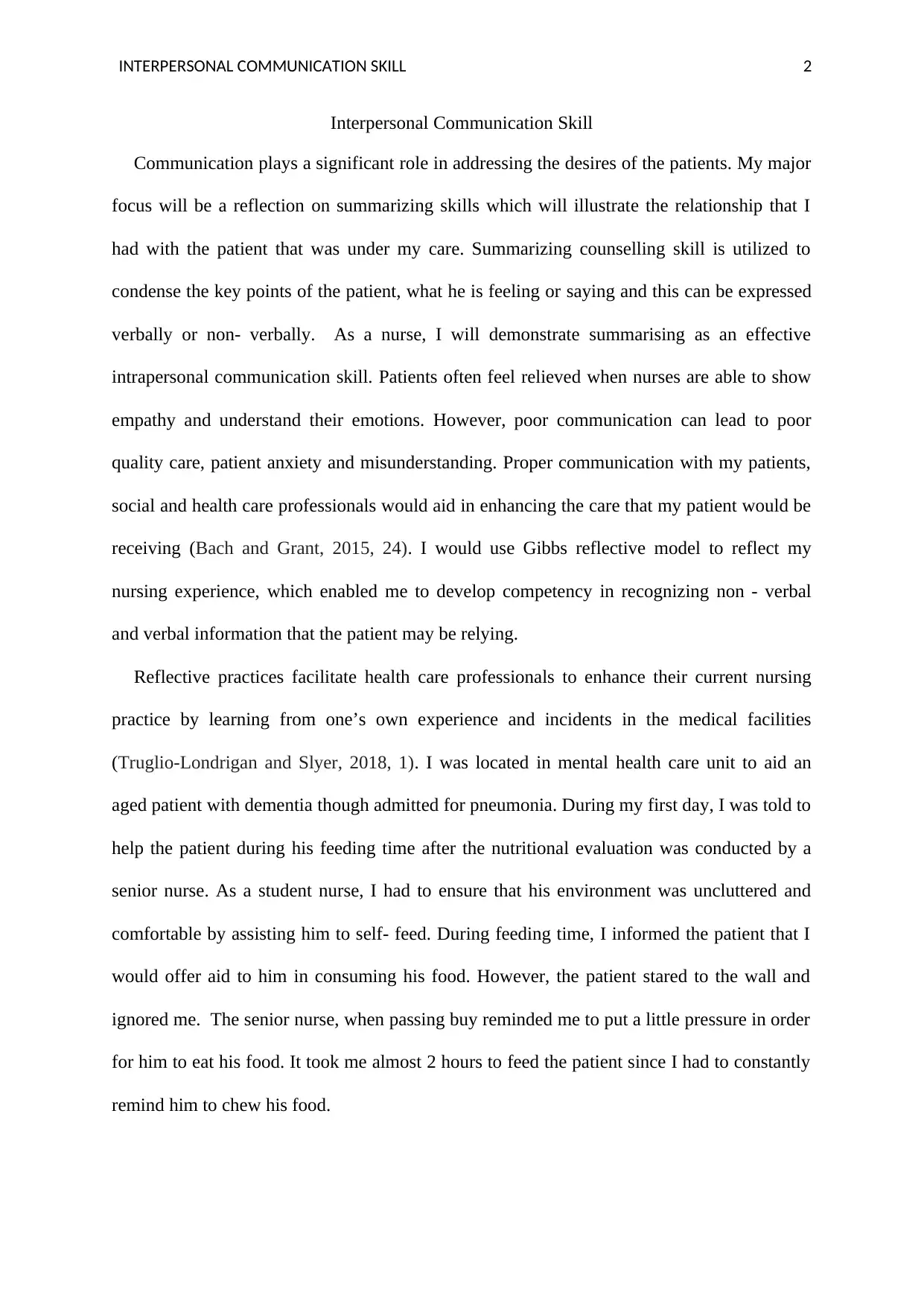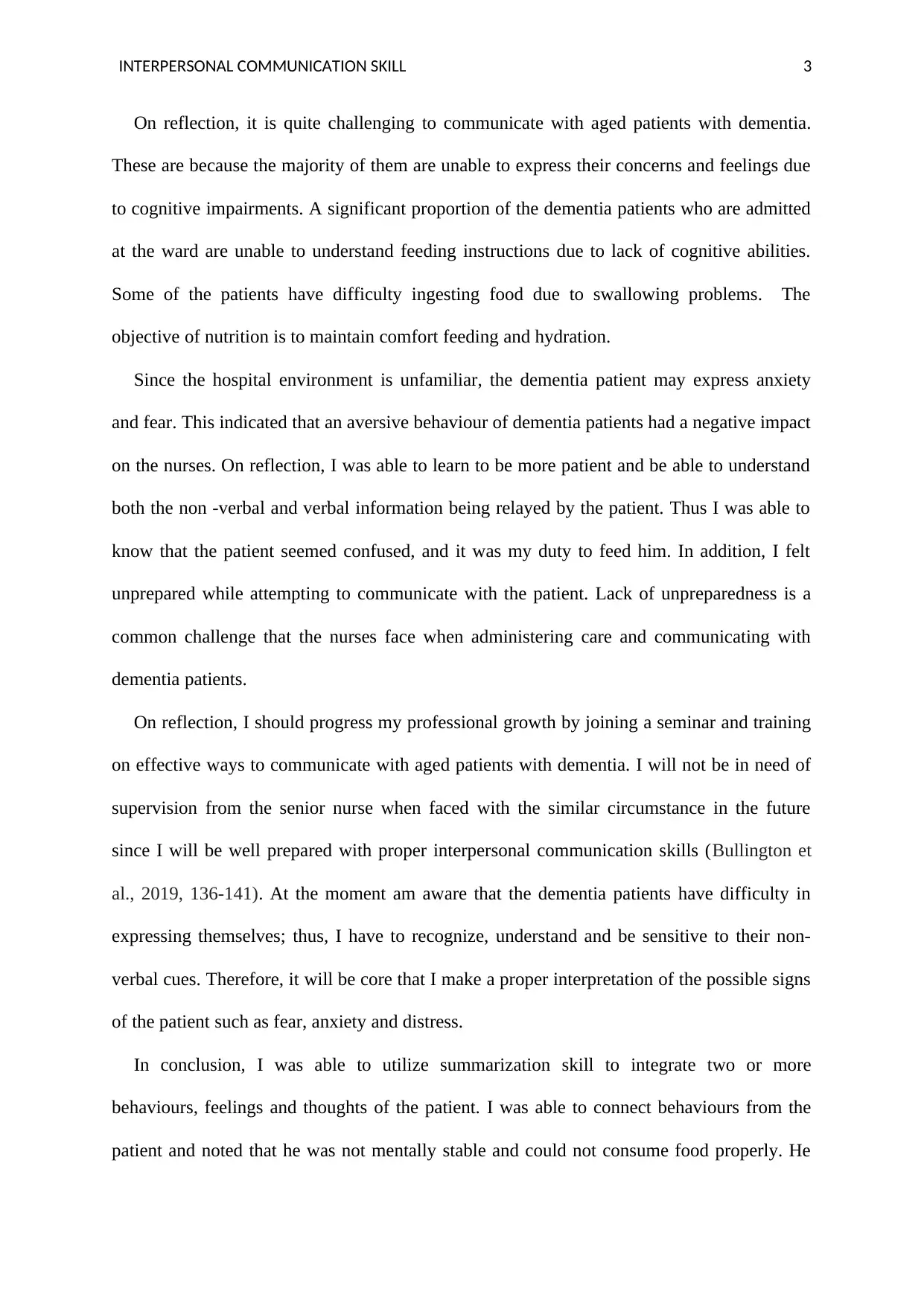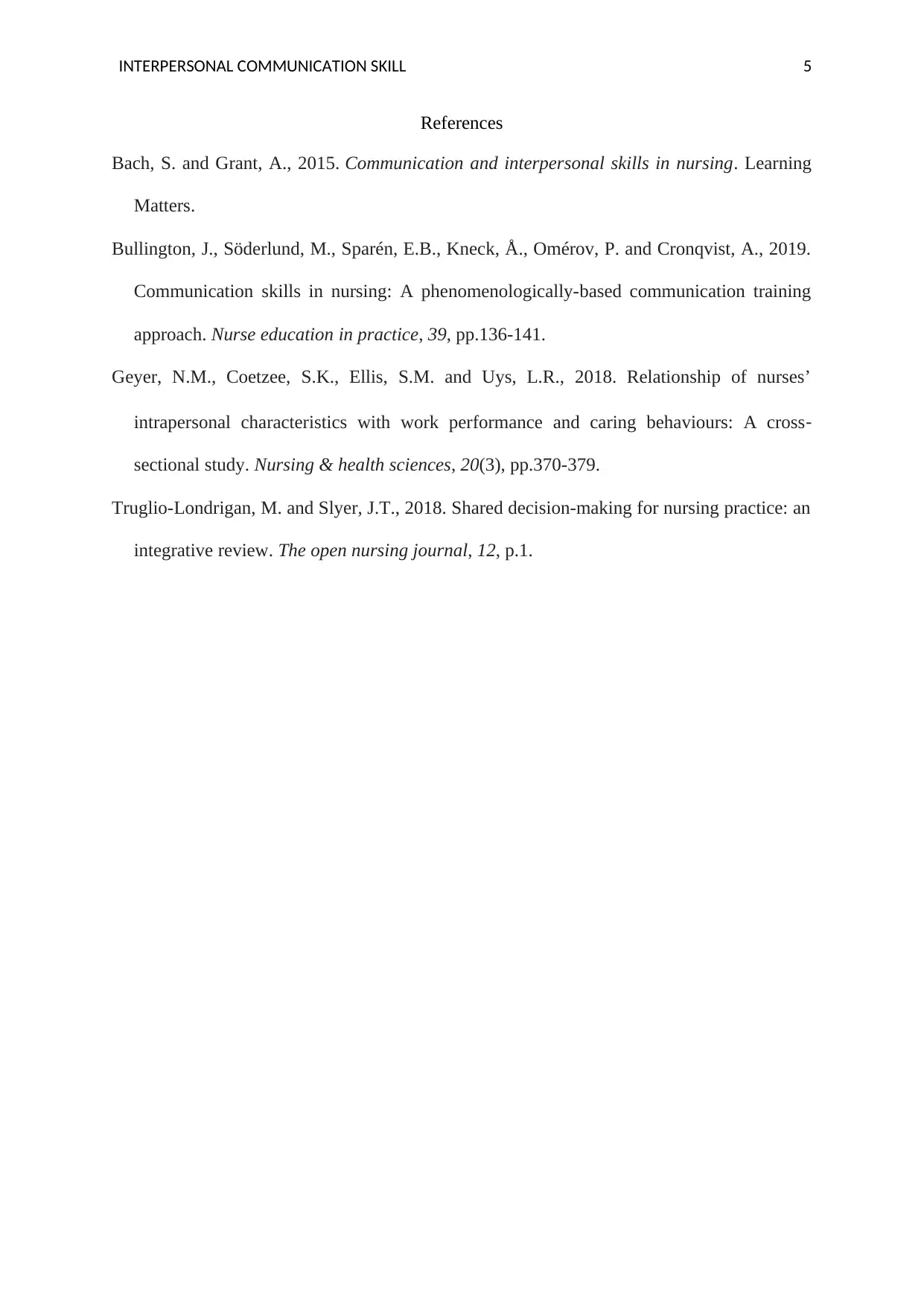Enhancing Interpersonal Communication Skills in Healthcare Settings
VerifiedAdded on 2022/09/13
|5
|1012
|34
Report
AI Summary
This report examines the significance of interpersonal communication skills in nursing, specifically highlighting the use of summarizing techniques in patient care. The student nurse reflects on their experience with an elderly patient with dementia, focusing on the challenges of communication, particularly the interpretation of non-verbal cues and the application of the Gibbs reflective model. The report emphasizes the importance of patience, understanding, and sensitivity to the patients' needs, especially those with cognitive impairments. It also discusses the challenges faced by nurses in providing care and the need for continuous professional development through training and seminars to enhance communication skills. The student nurse was able to utilize summarization skills to connect behaviors from the patient and noted that he was not mentally stable and could not consume food properly. The report also underscores the importance of building trust and strengthening the patient-nurse relationship through effective communication. The student encountered challenges in identifying, evaluating and interpreting the non-verbal communication cues, and has learnt the need to enhance medical judgement skills and develop confidence when handling patients.
1 out of 5











![[object Object]](/_next/static/media/star-bottom.7253800d.svg)